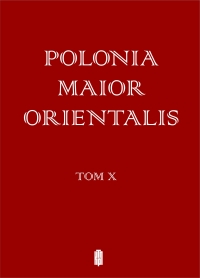Dąbianin Lajwe Wołkowicz i jego relacja pt. „Dąbie” z Archiwum Getta Warszawy (tzw. Archiwum Ringelbluma)
Lajwe Wołkowicz from Dąbie and his report „Dąbie” from the underground Archive of the Warsaw Ghetto (The Ringelblum Archive)
Author(s): Przemysław NowickiSubject(s): Jewish studies, Sociology, Social history, Family and social welfare, Pre-WW I & WW I (1900 -1919), WW II and following years (1940 - 1949)
Published by: Wydawnictwo Uniwersytetu Jagiellońskiego
Keywords: Dąbie; Koło; Shoah; Jews; Underground Archive of the Warsaw Ghetto; Lajwe Wołkowicz; Abram Rój; Szlama Winer; Michał Podchlebnik;
Summary/Abstract: This is a successive publication regarding Lajwe Wołkowicz’s report entitled “Dąbie” translated from Yiddish into Polish, but the first in conjunction with information concerning the full personal details of its author – name, date and place of birth, and also names of parents and siblings, dates of birth, family status and social position of the witness’s immediate family as well as other people mentioned in this document, living and working during the pre-war period in a small town in Koło County. The testimony presented in this article originates from the Underground Archive of the Warsaw Ghetto, the so-called Ringelblum Archive (Oneg Shabbat). It is an extremely important source in regard to the extermination of the Jews in Koło County (1941 and 1942) as well as the operation of the first death camp established on Polish land incorporated into the Third Reich, organized at Chełmno nad Nerem. Lajwe Wołkowicz recounts the wartime fate of Dąbie’s Jewish community. He was sent to Koło by the local Judenrat on 11 December 1941. Passing through Chełmno he noticed baggage inside the church as the doors were open. He stopped and went inside. No one was inside and no one questio- ned his presence in the village. In Koło, there were no Jews on the streets but he did meet with two members of the Judenrat. They told him of the transports to Chełmno (Kulmhof) as did a local Pole who he met twice during the trip. Lajwe Wołkowicz fled Dąbie on the day the deportations began. He spent some five weeks in Grabów before eventually making his way to Warsaw and recording his testimony
Journal: Polonia Maior Orientalis
- Issue Year: 2023
- Issue No: X
- Page Range: 329-348
- Page Count: 20
- Language: Polish

